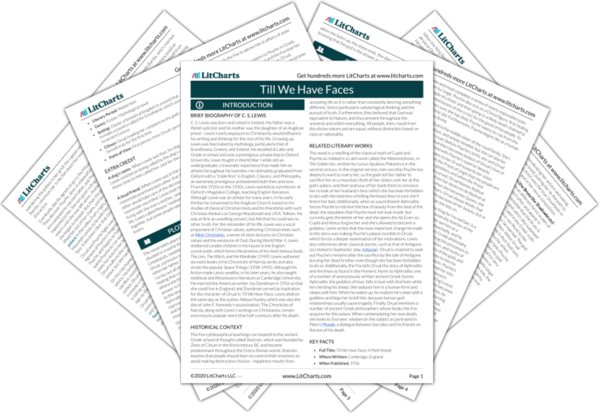A mirror is conventionally an instrument with which one examines one’s face. Thus, in this book mirrors act as instruments of self-understanding, since faces represent one’s true self. Orual sees the face of Ungit on herself when the King forces her to look in a mirror in a dream, thus confirming Ansit’s accusation that she has devoured people’s lives with her love as Ungit devours them. This vision in the mirror helps Orual on her way to understanding her cruel nature.
However, the mirror also functions as a symbol of Orual’s supposed inability to attract love. When she proposes that she can be sacrificed instead of Psyche, the King leads her to his giant mirror and tells her that the gods want only the best, implying that her ugliness disqualifies her. When Orual becomes Queen, she gets rid of the mirror for obvious reasons—it reminds her of the King’s rejection of her. This action also helps to sever her ties with the old Orual, who was dominated by the King and depressed by her ugliness. Thus, when the King makes her look in the mirror a second time, it also forces her to acknowledge the wrongs she has tried to bury deep inside her memory, which in turn have contributed to Ungit becoming so present within her that Ungit’s face appears in the mirror.








